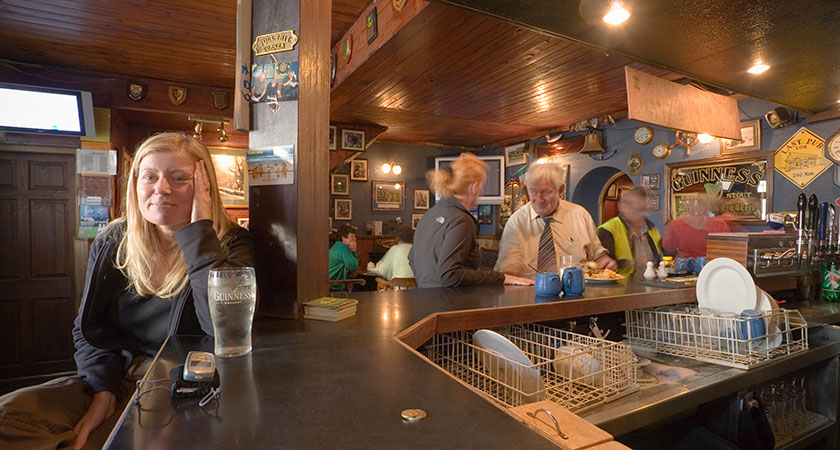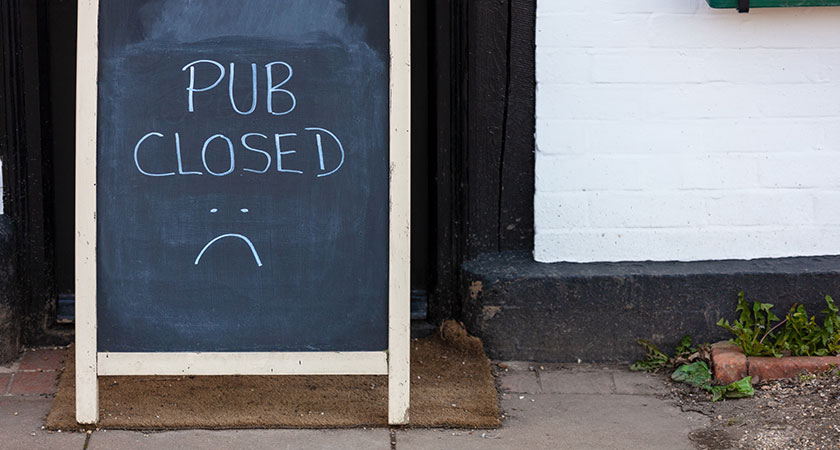A NEW report has revealed that almost 2,000 pubs have closed in Ireland since 2005, with rural areas disproportionally affected.
The Drinks Industry Group of Ireland (DIGI) said that 1,937 pubs closed their doors in that time, accounting for a 22.5 per cent decline in the number of pubs, or around 114 a year.
Small or family-run businesses accounted for the majority of the closures.
 The reported highlighted the importance of pubs to rural communities (Image: Richard Ross / The Image Bank / Getty Images)
The reported highlighted the importance of pubs to rural communities (Image: Richard Ross / The Image Bank / Getty Images)The report shows that the rate of decline has accelerated since the Covid-19 outbreak, with more than 450 pubs calling last orders since the start of the pandemic.
The sector is now calling on the government to ease the cost burden on regional small and family-run businesses by reducing Ireland's high alcohol excise tax over the next two years.
"The analysis in this report paints a stark picture of a sector that is fighting against continued decline due to a number of significant external pressures — many of which are outside of our control," said Kathryn D'Arcy, Chair of DIGI.
Repercussions
The Irish Pub: Supporting our Communities report was published today and revealed that since 2005, every county had experienced a decrease in the number of pubs.
However, DIGI said the number of closures disproportionately impacted more regional counties and areas outside of urban centres.
Limerick (32 per cent) saw the biggest decrease in pubs, followed by Roscommon (30.3 per cent), Cork (29.9 per cent) and Laois (29.9 per cent).
Eight other counties also showed closures of more than 25 per cent.
Dublin showed the lowest decrease during the period, with a fall of 3.4 per cent.
Economist Anthony Foley of DCU said the closures are more keenly felt in rural areas, where pubs are at the cultural and social heart of their communities.
"The cause and impact of these closures requires full consideration given the knock-on impact it has on the fabric of local communities as social outlets," he said.
 The report also highlighted the significance of pubs to Irish tourism (Image: Credit:
The report also highlighted the significance of pubs to Irish tourism (Image: Credit:MediaProduction / Getty Images)
"The loss of hundreds of these local businesses, employers, purchasers and community hubs has repercussions, particularly in more rural communities across the country."
He also cited the importance of pubs to Ireland's tourism sector by providing an extensive network of facilities and services.
"The Irish pub is a significant component of the tourism infrastructure and the tourism experience which is based on hospitality and service provision," he added.
"There are now 1,937 less locations for visitors to find and benefit from services such as food and entertainment.
"If we are to challenge this trend, we must look at factors which influence the viability of these businesses, particularly those costs over which the government has direct control."
Excise call
Ms D'Arcy said one option would be for the government to reduce Ireland's high excise duties on alcohol.
In Europe, Ireland has the highest excise on wine, the second highest on beer and the third highest on spirits.
"We have some of the highest excise duties in the world and the second highest in Europe overall, despite the industry being at the heart of Ireland's tourism sector and its international reputation as a vibrant destination," she said.
"The majority of the almost 2,000 pubs cited in the report which have closed represent the closure of a small or family-run business, the loss of a livelihood and the disappearance of a high-street landmark.
"We must create a sustainable operating environment for the sector and particularly those in more rural parts of the country who are being disproportionately impacted by Government policy.
"To address this challenge, DIGI are calling on Government to deliver a reduction in Ireland's extremely high excise duties which would make an immediate, positive difference to the hundreds of small businesses in our sector struggling to stay open."


